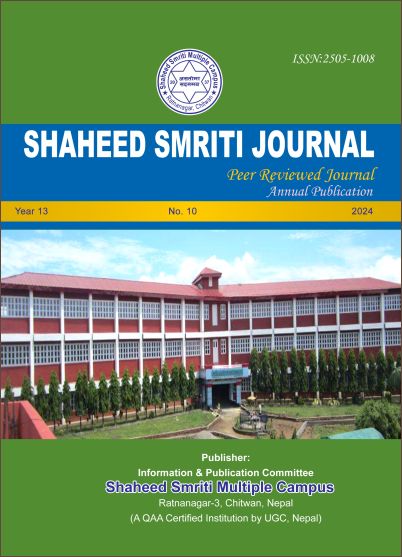Reciprocity between Language and Environment: Ecolinguistic Study of Haggard's King Solomon's Mines
DOI:
https://doi.org/10.3126/shaheedsmriti.v13i10.76810Keywords:
language, interaction, social construct, ecosystem, environmental justiceAbstract
This article analyzes the Ecolinguistic study of H. Rider Haggard's King Solomon's Mines, an adventurous novel set in Africa, a search of an unexplored region of Africa by a group of adventurers for the missing brother. It is the narrative of Allan Quatermain, an elephant hunter and explorer and his adventures in the company of Danish man of action Sir Henry Curtis and Royal Navy officer Captain Good. Sir Henry Curtis hires Quatermain to use his knowledge of Africa and his skills as a hunter to lead an expedition in search of Sir Henry’s lost brother, George Neville. George vanished while seeking the long-lost diamond mines of King Solomon in an unexplored part of Africa. Being the study of critical discourse analysis, this paper analyzes how the reciprocity between language and ecological phenomena/ environment are narrated in the novel with the focus of key theme of ecolinguistics to take into consideration for the social context including the wider ecological context of species and the physical environment. To accomplish this research, I have used the secondary sources of Ecolinguistics notions propounded by different critics like Alwin Fill, Tzeporah Berman, Peter Mühlhäusler and Edward Sapir as the tools of interpretation.




